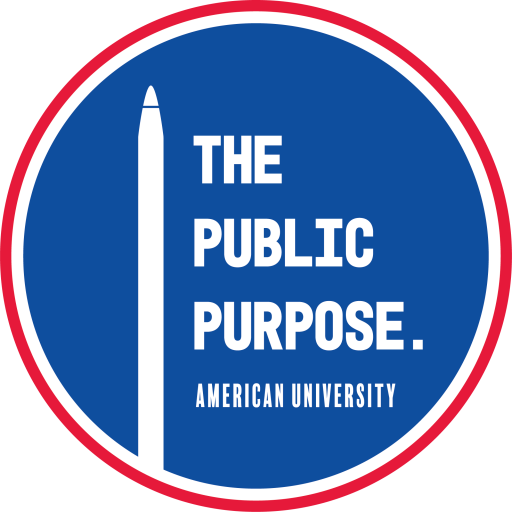“Nearly 6 million American citizens weren’t able to vote in the 2014 midterm elections due to their criminal records.”
Vox
“There are more felons barred from voting for Senate in Georgia than there will be voters in Alaska”
The Washington Post
Felon disenfranchisement is the practice of removing the right to vote from an individual who has been convicted of certain crimes. The practice varies by state and it also applies in federal elections. These types of policies include:
- Prohibiting prison inmates from voting
- Prohibiting those in prison and on parole
- Prohibiting those in prison and on parole or probation
- Prohibiting inmates, parolees, probationers, and those who have completed their sentence (prohibitions post-sentence vary by state)

All told, 5.8 million Americans are disenfranchised as a result of their involvement in the criminal justice system, or about 2.5% of the total voting-age population. Of the disenfranchised population, 75% of them live in their communities, and 2.6 million of them live in states that impose post-sentence voting restrictions for certain offenses.
Considering the racial make-up of the felon disenfranchised population paints an even bleaker picture, highlighting some of the racial biases in the criminal justice system and the original formation of these policies in the U.S. One in thirteen black adults is disenfranchised in this nation. In three states – Florida, Kentucky, and Virginia – one in five black adults are disenfranchised. A total of 2.2 million black citizens cannot vote under felon disenfranchisement policies. The criminal justice system as a whole is notorious for racial disparities, and felon disenfranchisement – often termed a collateral consequence of conviction – is just one manifestation of that.
The concept of felon disenfranchisement can be traced back to English common law, medieval Europe, the Holy Roman Empire, and ancient Greece. “Civil death” was sometimes a consequence of committing a crime, and the civilly dead could not participate politically, could not appear in court, and could not serve in the army. During the European Renaissance, “outlaws” could be killed with impunity, since they were literally considered to be outside the law”. The practice came to America with the colonists but gained importance after the Civil War. States like Alabama and Mississippi designed felon disenfranchisement laws to target the crimes believed to be most frequently committed by the newly enfranchised African-American population. Scholars argue these policies were intended to restrict blacks’ political power and maintain the status quo for powerful and wealthy white elites. Considering this history, as well as the current state of the criminal justice system, there is an undeniable racial disparity in felon disenfranchisement policy.
This issue also points to a disparity between the ideals of American democracy and its practice. Outgoing Attorney General Eric Holder, in an address this past February, made a call to all states to reconsider disenfranchisement policies, and to “restore the voting rights of all who have served their terms, … completed their parole or probation, and paid their fines.” He calls the practice unwise, unjust, and “not in keeping with our democratic values.”
The Supreme Court disagrees. In Richardson v. Ramirez, the court upheld California’s felon disenfranchisement law. Section 2 of the Fourteenth Amendment allows for the denial of voting rights for “participation in rebellion, or other crime.” Section 1 of the Fourteenth Amendment grants us all the equal protection of the laws. The court concluded, however, that the Equal Protection clause is not intended to prohibit felon disenfranchisement.
This decision is based on a particular interpretation of the 14th Amendment that some criticize. Critics claim it contradicts other decisions that declare the importance of citizenship and enfranchisement. Justice Brennan once declared expatriation to be “the antithesis of rehabilitation,” suggesting that alienating a citizen from civic participation is counterproductive. Regardless, felon disenfranchisement is constitutional.
However, it is important to consider whether this practice is healthy for a democracy. The right to vote is one of the bedrocks of our country, yet several million Americans cannot partake, even though many of them have paid their debt. Is it a question of a former felon’s judgment, such that we cannot trust them to vote for the right candidates? Do we fear that former offenders will suddenly commit electoral crimes? These concerns don’t change the fact that these Americans live under American law, and thus should have a say in who is drafting those laws.
Research also suggests there is a link between successful community reintegration and reduced recidivism. Beyond the criminological research on community engagement and collective efficacy, some research has asked specifically if voting has an effect on recidivism. Uggen and Manza report an association between voting and reduced criminal activity post-sentence. Although this relationship is by no means causal, the authors suggest, “Voting appears to be part of a package of pro-social behavior that is linked to resistance from crime”. As for concerns about ex-felons committing electoral crimes, the data simply doesn’t exist – we can’t know its frequency. Uggen and Manza, however, estimate it’s a negligible amount. If enfranchisement might help, and likely doesn’t hurt, is it not worth establishing nationwide?
I’m joining Attorney General Holder and Senator Rand Paul in calling for a change in disenfranchisement practices. I think we can go further, and allow former offenders and those currently serving community sentences (such as probation and parole) to vote. Letting probationers and parolees vote, alongside those who have completed their sentences, sends a signal to these individuals. It lets them know that their communities accept them, can come to trust them, and appreciate their voices. If we want offenders to be rehabilitated and reintegrated into society, they need to feel like a part of that society. Silencing their political opinions is an obstacle to feeling like an equal member of society, and only serves to hinder their reintegration.



0 Comments